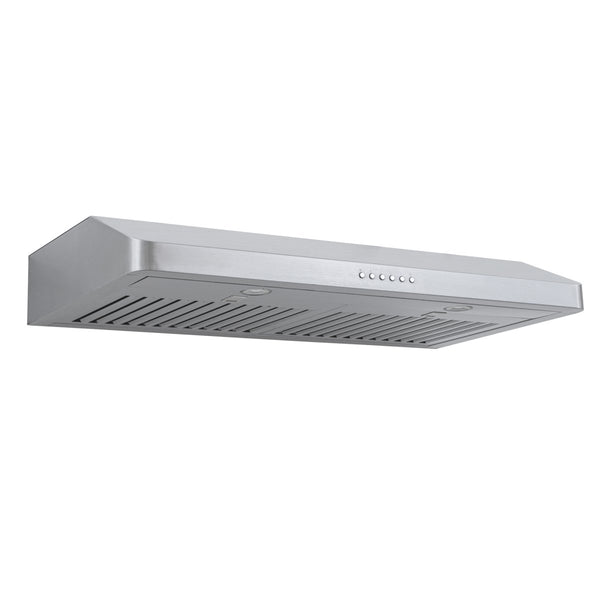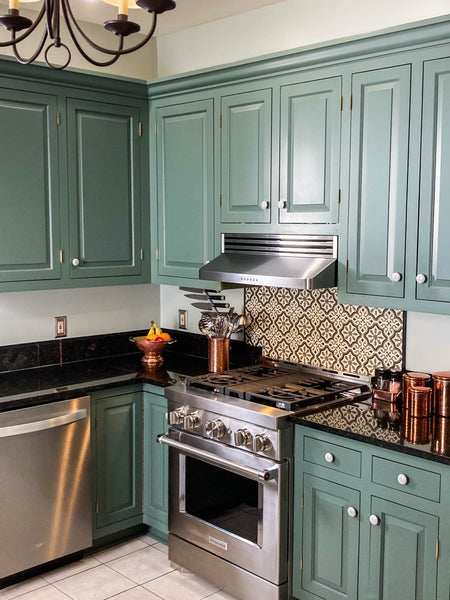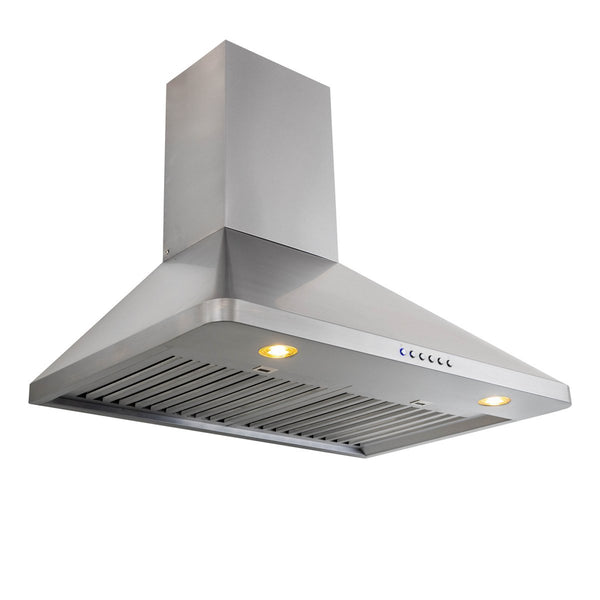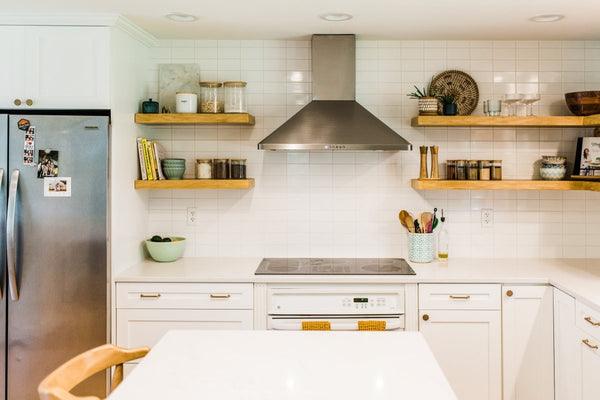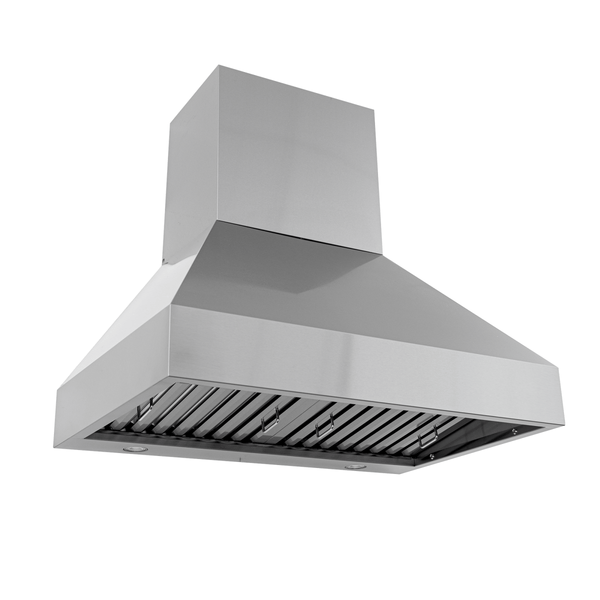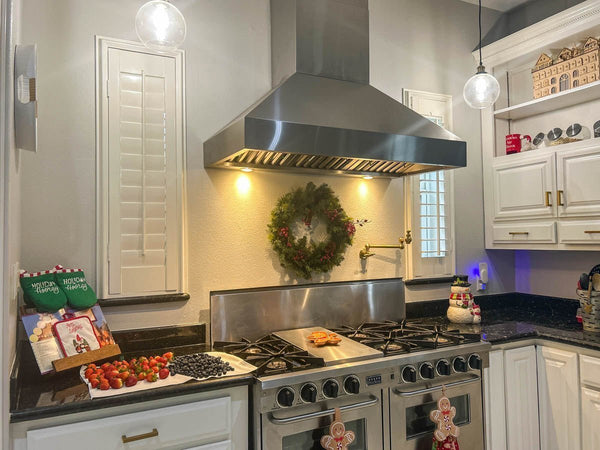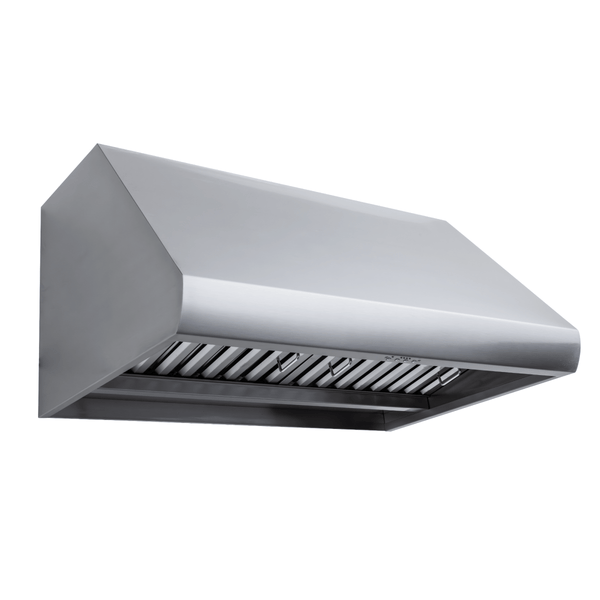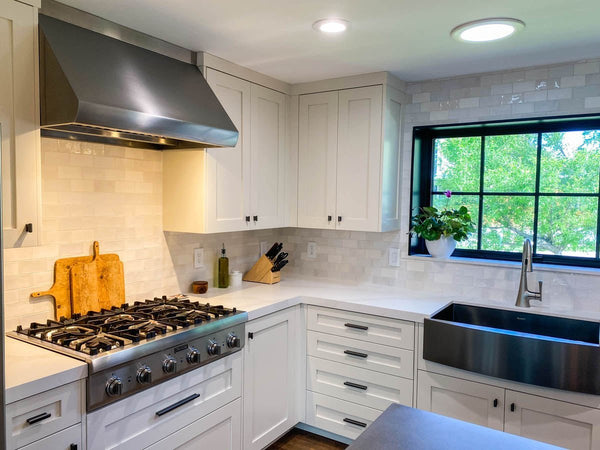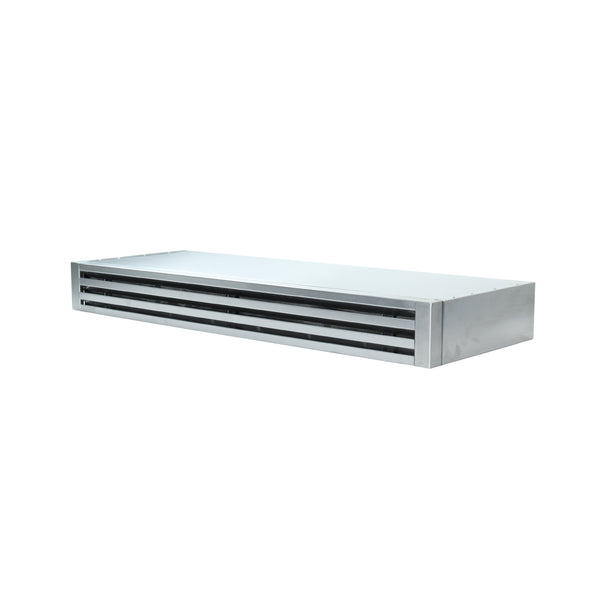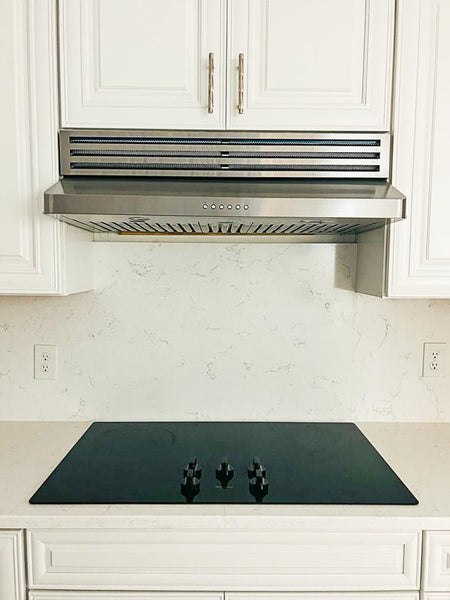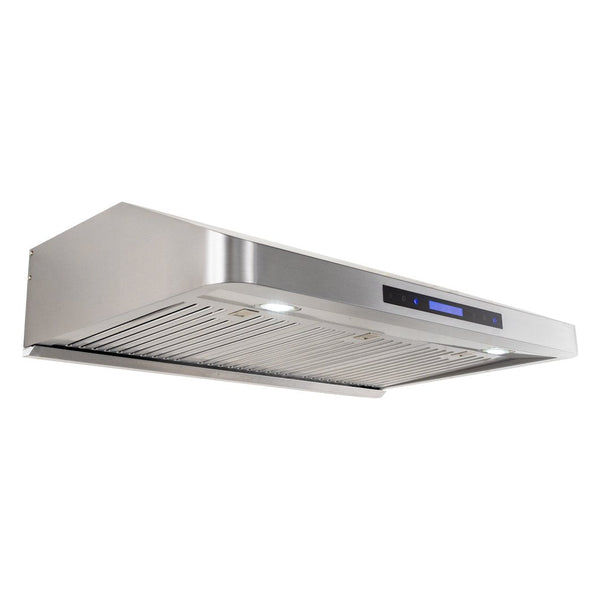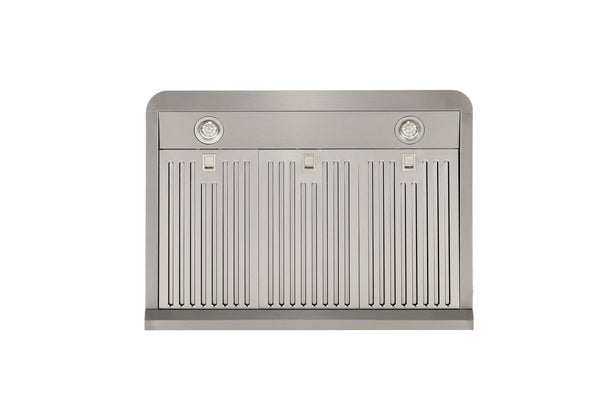Kitchen remodeling requires a lot of planning and preparation. It’s important to plan well, because kitchens can be quite expensive to renovate. You might be wondering: how do I plan out a successful project?
These kitchen remodeling tips will guide you through a successful kitchen remodel with 10 helpful tips.
We'll cover everything from choosing the right contractors to picking out a design you'll love.
As you prepare for your kitchen remodel, print this article out. We want you to get off to a smooth start.
Choose your contractors early – and give yourself a few different options.
It can be difficult to manage contractors’ schedules, so it's best to find them early.
Don't just go with the first one you find; instead, compare three to five different ones.
Pay attention to customer reviews, their past work, availability, licenses, and price. If you have any additional questions related to your project, ask the contractor upfront.
How to Choose the Right Contractor
Here are a few questions to consider when choosing a contractor.
- Do they charge for travel time? How far away are they from your home?
- Are they licensed or unlicensed?
- How long have they been in business?
- Have they done a similar job before?
- Does their availability match with your timeline?
- What do other people say about their work?
This isn't an exhaustive list, but we have a complete article on choosing a contractor for your range hood here. You can follow almost the exact process to find a contractor for anything kitchen-related. Check it out!
Hire a designer early – and meet with them face-to-face.

It's important to hire a designer early in the kitchen remodeling process. The design choices you make will inform the whole scope of your remodel. Your kitchen design can tell you whether to leave or tear down a wall or paint the room a certain color. It might determine whether to put your fridge by the stove or across from the island.
So, design is crucial to nail down early so you don’t spend extra time down the line moving around appliances, changing paint colors, and the like.
When looking for a designer, you'll want one that will explain the reasoning behind their advice. It's not enough to just make a simple mock-up of your new kitchen and call it a day.
We recommend scheduling a time for them to come out and check out your current kitchen. They'll determine what you need contractors for, what to demolish, where new appliances go, and much more.
If you want to keep some of the electrical or plumbing intact, that may limit what the designers can suggest. So, it's important for them to see your kitchen and understand your goals for the kitchen remodel.
Decide how much you want to do yourself.
How much you want to tackle on your own depends on your budget, time, and DIY experience. If you do some of your kitchen remodel yourself, you'll save money at the expense of time.
If you need to make any structural changes to your home, such as modifying electrical or plumbing, don't try to do that work yourself. Just hire a professional who knows all about the rules and regulations for those installations.
Decide on the scope of your remodel.
Do you want to make a few minor upgrades, do a full-scale kitchen remodel, or somewhere in between? Minor upgrades may not require contractors or designers, while more ambitious projects may need both.
Once you decide on what you're remodeling, you can make a rough timeline.
Make a rough timeline with goals.
To make the remodel go smoothly, create a timeline. This can feature things that you need to do to prep for the remodel, and the remodel itself.
For example, your timeline can include anything from booking a hotel to installing cabinet drawers.
Give yourself a little more time than you think you’ll need. Often projects can get delayed, and you don’t want delays to cause you too much stress.
Be prepared for delays.

Delays are a part of remodeling, and you don't want them to catch you off guard.
Expect to have multiple delays, sometimes weeks or even months. If you are doing some remodeling yourself, you may have more setbacks than usual.
Here are a few examples of delays you might encounter.
- You start a project that you realize you can't finish yourself.
- Your contractor gets busy and has to revise his schedule.
- You have a medical or family emergency
- You're having trouble getting materials on time.
- Your contractor makes some installation mistakes (A good contractor can reduce this risk).
A great way to lessen the pain of these delays is to have some extra money on hand. This brings us to our next point.
Set aside a few grand for an emergency fund.
Generally, save about 10% of the total cost of your kitchen remodel for emergencies only. These are things you have to do that you didn't expect. It could be anything from tearing down a wall to installing new electrical wires.
The extra money is a great safety net, because you won't feel on edge all the time. You won't be worried that at any moment, your kitchen remodel can derail with just one setback.
Map out all your expenses.
It's easy to spend money, and not so easy to make it. If you don't map out all your expenses, you can quickly lose track of how much you're spending, and put yourself in a tough spot if delays occur.
When writing out all your expenses be sure to cover the following:
- Labor costs (contractors)
- Cabinets, countertops, and flooring
- Materials (for projects you will do yourself)
- Lodging (if you're leaving your home for the kitchen renovation)
- New appliances
This list is not exhaustive, but it will likely cover the bulk of your expenses.
Note: Do not forget to factor labor costs into your expenses. This is a common mistake many homeowners make. If you don't have all your contractors hired, make an estimate for the cost rather than leaving it out.
If needed, book a hotel during the peak of your kitchen remodel.

If you're doing a larger kitchen remodel, you might choose to find a place to stay during the project. Only stay for as long as you need, because this cost can add up. You might experience delays during the peak of your remodel, which means you will have to spend more money on a hotel.
Reflect on why you are renovating your kitchen.
A kitchen remodel can be a big project, so it's important that you get the most out of it. Think about why you wanted to renovate in the first place. Is your current kitchen cramped? Do you need more seating? Are the cabinets and counters outdated?
Identify the pain points of your current kitchen and make those a priority throughout the kitchen remodel. You don't want to put all the time, effort, and money into a project that doesn't turn out how you want.
We hope these kitchen remodel tips help you make the right decisions. If we didn't answer your questions, you might find what you're looking for in the articles below. Thanks for reading!
